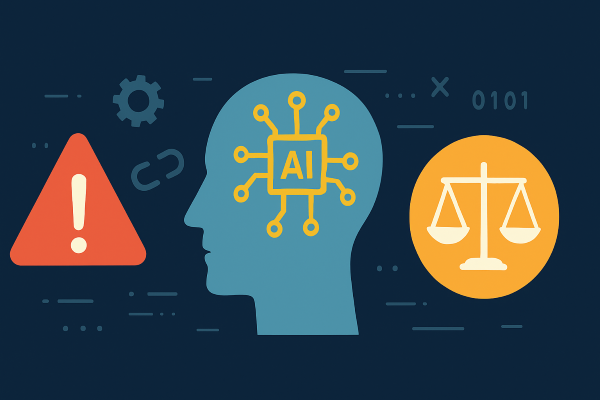
The Privacy Concerns of Using AI in Small Businesses
Artificial intelligence (AI) is rapidly transforming the business landscape, offering small businesses unprecedented opportunities for growth and efficiency. However, integrating AI also presents significant privacy concerns that must be carefully addressed. This article will explore small businesses’ key privacy challenges when adopting AI technologies.
Data Collection and Usage
One of the primary concerns is the collection and usage of customer data. Many AI applications rely on vast amounts of data to function effectively. This data can include personal information, purchasing history, browsing behavior, and even sensitive data like health information. Small businesses must be transparent with their customers about what data they collect, how it is used, and who has access to it. Failure to do so can erode customer trust and lead to legal repercussions.
Additionally, using third-party AI providers raises concerns about data security and control. When small businesses utilize AI services from external vendors, they are essentially entrusting their customer data to a third party. This raises questions about the security of that data, the vendor’s data privacy practices, and the potential for data breaches or misuse.
Algorithmic Bias and Discrimination
AI algorithms are trained on massive datasets, which can reflect and amplify existing societal biases. This can lead to discriminatory outcomes, such as biased loan approvals, unfair hiring practices, or targeted marketing based on sensitive characteristics. Small businesses must be vigilant in identifying and mitigating potential biases in the AI systems they use to ensure fair and equitable treatment of all customers.
Lack of Transparency and Explainability
Many AI algorithms operate as "black boxes," meaning it is difficult to understand how they arrive at their decisions. This lack of transparency can make it challenging to identify and address biases, debug errors, and ensure compliance with regulations. This lack of explainability can also make it difficult for businesses to justify decisions made by AI systems, which can be crucial in situations involving customer disputes or legal challenges.
Data Security and Privacy Risks
Using AI systems can increase the risk of data breaches and cyberattacks. Hackers may target AI systems to steal sensitive customer data, manipulate algorithms, or disrupt business operations. Small businesses must implement robust security measures to protect their data and AI systems from cyber threats. This includes data encryption, access controls, regular security audits, and employee training on cybersecurity best practices.
Regulatory Compliance
The use of AI is subject to a growing number of regulations, including data privacy laws such as the General Data Protection Regulation (GDPR) and the California Consumer Privacy Act (CCPA). To avoid fines and legal challenges, small businesses must ensure their AI practices comply with all applicable regulations. This requires a thorough understanding of relevant regulations and the implementation of appropriate data governance and compliance procedures.
Building Trust and Maintaining Customer Confidence
Addressing privacy concerns is crucial for building and maintaining customer trust. Small businesses must prioritize transparency, data security, and fairness in their AI practices. This includes obtaining explicit consent from customers for data collection and use, providing clear and concise privacy policies, and implementing robust data security measures. By demonstrating a commitment to data privacy and ethical AI practices, small businesses can build strong customer relationships and gain a competitive advantage.
Mitigating Privacy Risks
Several strategies can help small businesses mitigate the privacy risks associated with AI:
- Data Minimization: Collect only the data necessary for the specific AI application and avoid collecting unnecessary personal information.
- Data Anonymization and Pseudonymization: Techniques such as data anonymization and pseudonymization can protect customer privacy while enabling the use of data for AI applications.
- Regular Data Audits and Security Assessments: Conduct regular audits of data collection, storage, and processing practices to identify and address potential privacy risks.
- Employee Training: Train employees on data privacy best practices, including the proper handling of customer data and the importance of data security.
- Staying Informed about Regulations: Stay up to date on evolving data privacy regulations and ensure compliance with all applicable laws.
- Collaborating with Trusted AI Providers: Choose AI providers with strong data privacy and security practices and transparent data usage policies.
- Prioritizing Customer Trust: Be transparent with customers about data collection and usage practices and prioritize building and maintaining customer trust.
By carefully considering these privacy concerns and implementing appropriate measures, small businesses can harness the power of AI while safeguarding customer privacy and maintaining a strong ethical foundation.

 How AI Can Help Your Business
How AI Can Help Your Business